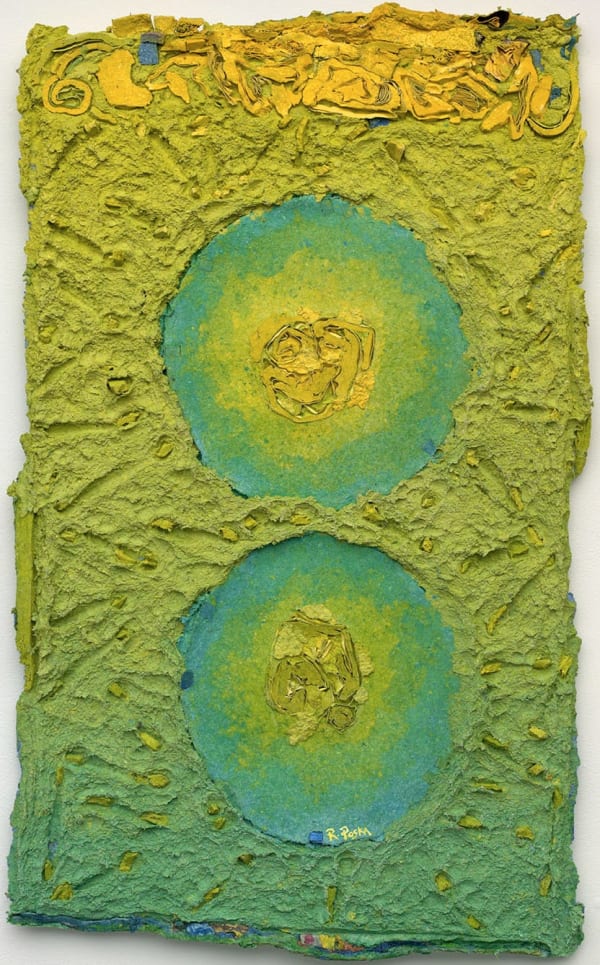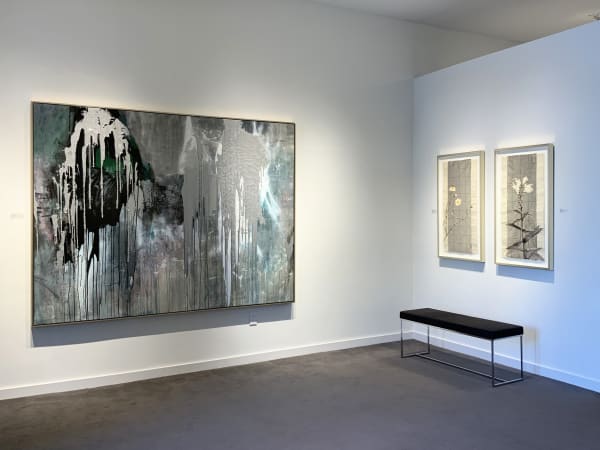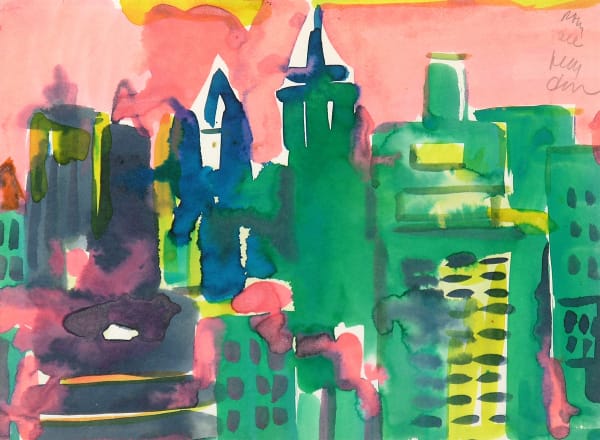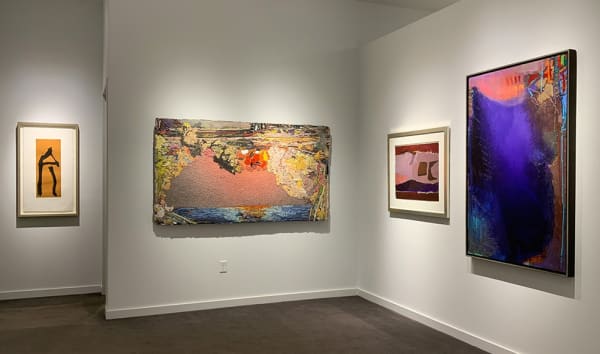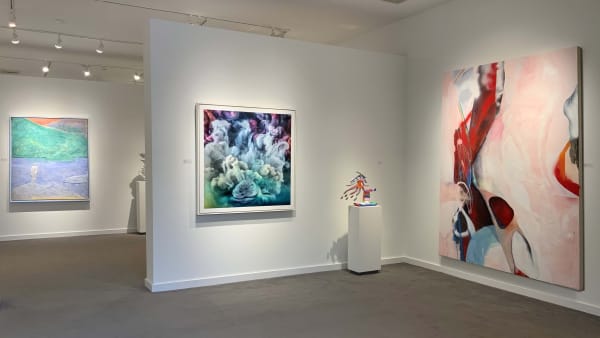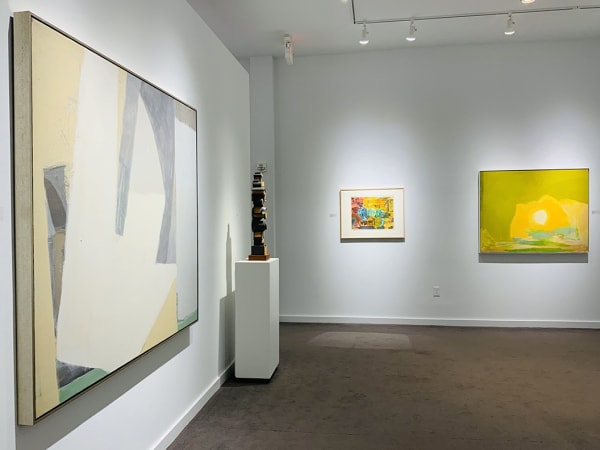Roland Poska American, 1938-2017
Roland Poska was a pioneer in the field of printmaking and papermaking and sought to extend and break the boundaries of his chosen medium. He landed on what he called "Papestries" or paper tapestries. His process involved preparing five-gallon buckets of moist cotton fibers mixed with pure powdered pigment to achieve his desired color palette. The texture of the paper pulp varied in consistency from apple sauce to bread dough. He laid handfuls onto plastic sheeting and added elements such as handmade sliced forms and coils. After drying, Poska would flip the panel over and reveal a flattened yet technicolor abstract composition. He would then assess and sometimes alter the surface by adding more pulp, peeling away or overpainting. A sizable work could take six months to complete. Many works consist of multiple panels with intentionally rough and unrefined edges, a nod to the signature deckled edges of handmade paper. Late in his career, he grew his oeuvre to include large sculptures, called Sentinels, made with a similar process.
Roland Poska was born in Scotland in 1938 and immigrated to Rockford, Illionis when he was a child. He received degrees from Rockford College and Cranbrook Academy of Art, where he was introduced to the mechanics of paper making. He later cofounded the Milwaukee School of Art and Design and taught there while simultaneously running a lithography print studio, Fishy Whale Press.
-

Spring Selections
Group Exhibition April 1 - 22, 2023An exhibition of paintings, sculptures and works on paper to celebrate Spring . Featured artists include Charles Basham, Katherine Boxall, Raul Diaz, Lee Hall, Robert Kushner, Thomas McNickle, Dennis Lee...Read more -

America Seen - American Scenes
Group Exhibition June 25 - September 3, 2022To View The Exhibition Please Visit Our Online Viewing Room Jerald Melberg Gallery is pleased to present an exhibition of paintings and works on paper depicting landscapes, cityscapes and flora...Read more -

American Abstraction
Group Exhibition November 6, 2021 - January 1, 2022Jerald Melberg Gallery presents an exhibition featuring works of American Abstraction . Abstraction firmly took hold in the United States during the mid-twentieth century when the Abstract Expressionist movement emerged...Read more -

Summertime
Group Exhibition June 21 - August 28, 2021An exhibition of paintings, sculptures and works on paper inspired by summertime . Featured artists include Jesse Redwin Bardin, Charles Basham, Romare Bearden, Katherine Boxall, William Partridge Burpee, Dale Chihuly,...Read more
-

Winter Selections
Group Exhibition January 16 - March 6, 2021Jerald Melberg Gallery is pleased to present a group exhibition featuring works by gallery artists Charles Basham, Romare Bearden, Christopher Clamp, Raul Diaz, Susan Grossman, Lee Hall, Wolf Kahn, Kim...Read more -

Fall Selections
Group Exhibition September 26 - November 7, 2020Jerald Melberg Gallery is pleased to present a group exhibition featuring works by gallery artists Charles Basham, Romare Bearden, Katherine Boxall, Christopher Clamp, Susan Grossman, Lee Hall, Gordon Onslow Ford, Frank Faulkner, Wolf Kahn, Kim Keever, Robert Kushner, Thomas McNickle, Dennis Lee Mitchell, Robert Motherwell, Roland Poska, James Rosati, Brian Rutenberg, and Esteban Vicente.Read more -

Roland Poska
Deckle Edge September 15 - November 3, 2018Roland Poska (1938-2017) was a pioneer in the field of printmaking and papermaking and sought to extend and break the boundaries of his chosen medium. He landed on what he...Read more

